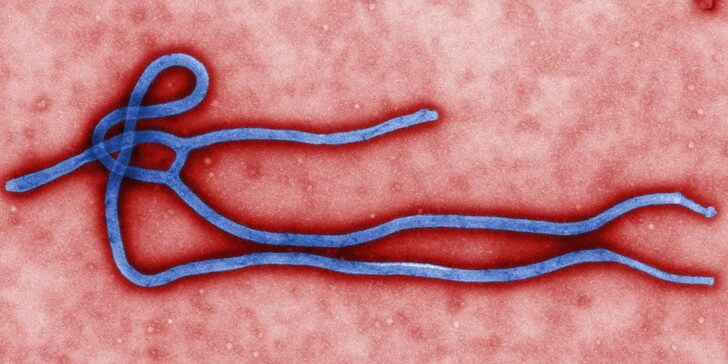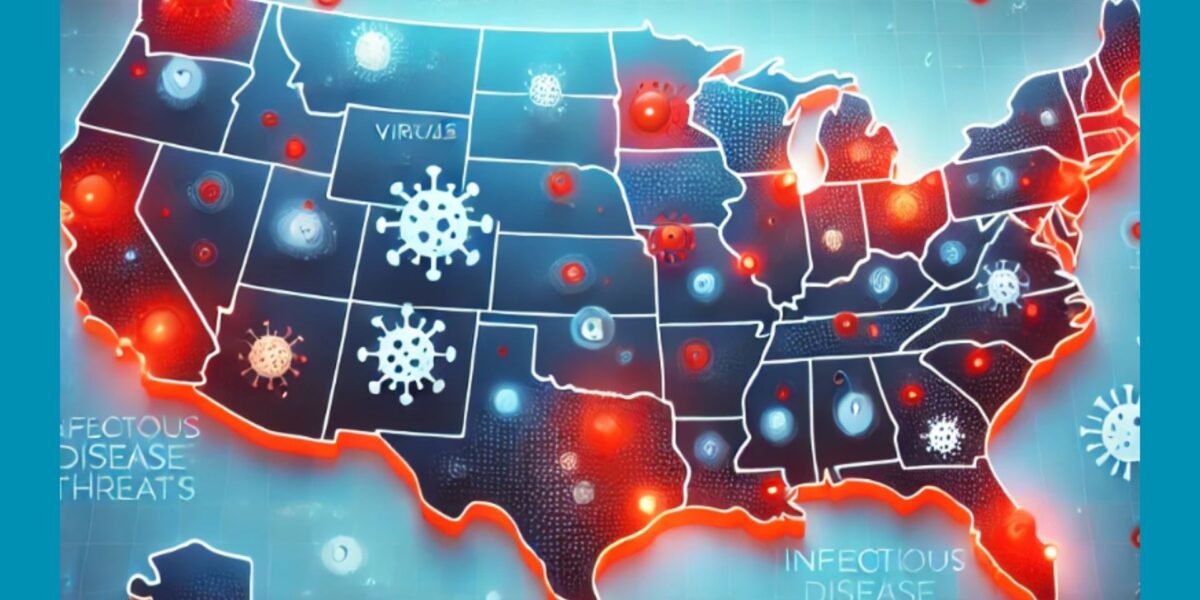
2014 featured much activity in the world of infectious diseases–from the Ebola virus outbreak in West Africa, to increasing vaccine-preventable disease outbreaks here in the US.
Featured below are the top 5 infectious diseases stories of the year, according to NFID. While the list is by no means exhaustive, it highlights several significant developments in infectious disease prevention and the ongoing importance of vaccination.
1. Ebola
The Ebola virus was arguably the biggest story of 2014, capturing the attention of the media and the public at large. The outbreak began in West Africa at the beginning of the year and has been described as unprecedented in its speed and geographic spread. Time magazine named the Ebola Fighters as Person of the Year, in praise of their efforts as healthcare professionals (HCPs) on the frontline of the crisis, while caring for sick patients at great risk to their own personal health. Additionally, due to the global impact of the outbreak, there has been an increase in efforts to fast track potential vaccines and treatments for the disease. The National Institutes of Health (NIH) National Institute of Allergy and Infectious Diseases, in collaboration with GlaxoSmithKline, has an experimental Ebola vaccine in development that has produced immune system responses in all 20 healthy adults in Phase I clinical trials.
2. Human Papillomavirus (HPV)
The Centers for Disease Control and Prevention (CDC) and its partners issued a call to action for all HCPs to strongly recommend HPV vaccination for both boys and girls at 11-12 years of age. On December 10, 2014, the US Food and Drug Administration (FDA) approved the HPV-9 valent vaccine for use in females ages 9 through 26 and males ages 9 through 15. The new vaccine has the potential to prevent approximately 90% of cervical, vulvar, vaginal, and anal cancers. To help HCPs communicate the importance of HPV vaccination as cancer prevention to patients and their parents, CDC developed the “You Are the Key” program. Additionally, NFID partnered with the Council of State and Territorial Epidemiologists (CSTE) to develop a call to action, HPV Vaccination as a Public Health Priority, along with two webinars focused on improving HPV vaccination rates.
3. Influenza (Flu)
The 2014-2015 influenza season is shaping up to be just as unpredictable as past seasons. According to CDC, the influenza strains most active in the US this season are influenza A (H3N2) viruses, typically associated with higher levels of hospitalization and death from flu and flu-related complications. Samples of the viruses collected indicate that about half of these H3N2 strains drifted from the H3N2 vaccine virus, meaning the vaccines are likely to offer less protection than in past seasons. However, health officials and NFID emphasize that the flu vaccine still remains the first and best defense against the flu this season.
4. Meningococcal B
Across the country, college campuses saw outbreaks of the meningococcal B virus in 2014. In May 2014 NFID released a report, Addressing the Challenges of Serogroup B Meningococcal Disease Outbreaks on Campuses, later highlighted in a November 2014 NFID webinar. On October 29, 2014, the US Food and Drug Administration (FDA) licensed a new vaccine to protect against invasive meningococcal disease caused by Neisseria meningitidis serogroup B in individuals between 10 and 25 years of age as a 3-dose series.
5. Pneumococcal
On September 19, 2014, CDC adopted the updated Advisory Committee on Immunization Practices (ACIP) recommendations for pneumococcal vaccination to include the use of the 13-valent conjugate vaccine (PCV13) among adults 65 years of age and older, in addition to the 23-valent polysaccharide vaccine (PPSV23). NFID has developed an updated pneumococcal vaccination guide for those who are still unsure or wondering which (if any) of these vaccines they may need.
Share your thoughts on the top infectious disease stories of 2014. To join the conversation, follow us on Twitter (@nfidvaccines), like us on Facebook, and join the NFID Linkedin Group.
The NFID News team will be on break for the remainder of 2014. Happy holidays to all our readers and best wishes for a healthy 2015!
Related Posts

News Round-Up: Infectious Disease Threats
According to NFID website poll, there are several worrisome infectious disease threats. Read recent news on topics of greatest concern, including avian influenza (bird flu), measles, and respiratory syncytial virus (RSV) …

Vaccines and Heart Health: A Vital Connection
Heart disease can increase the risk of serious or fatal complications from respiratory diseases including COVID-19, flu, and RSV

Harnessing the Power of Local Data
NFID dashboard aims to empower stakeholders with hyperlocal data to increase US adult respiratory vaccine uptake
